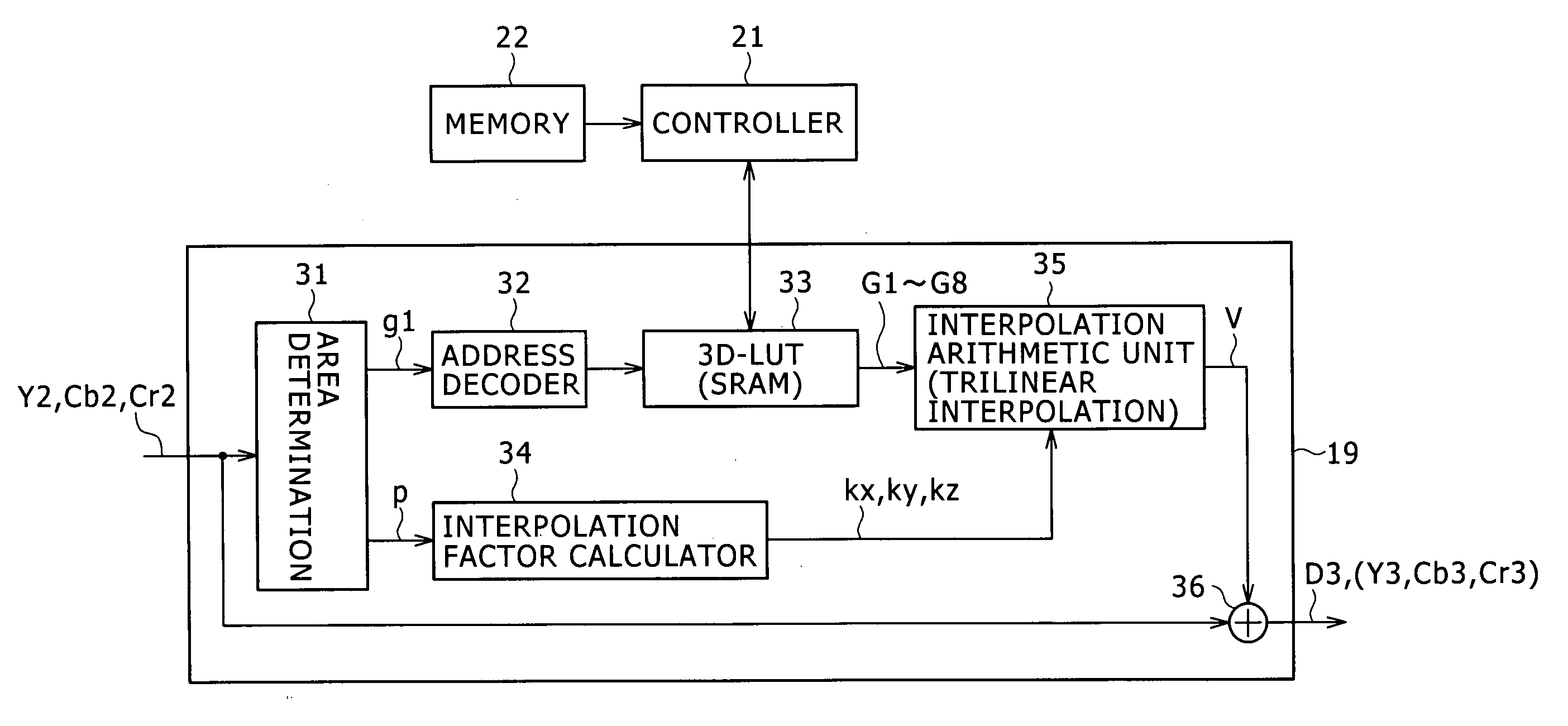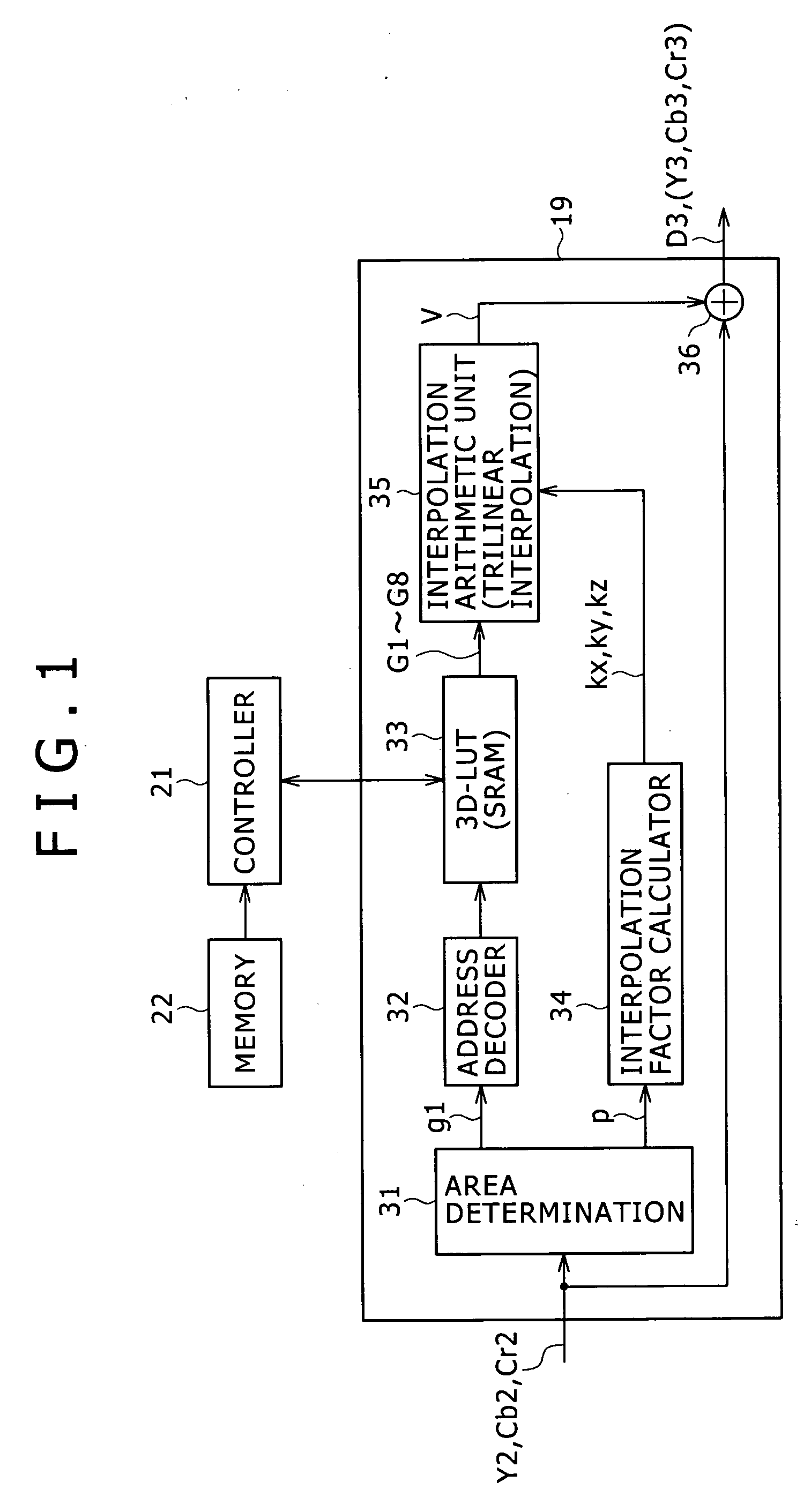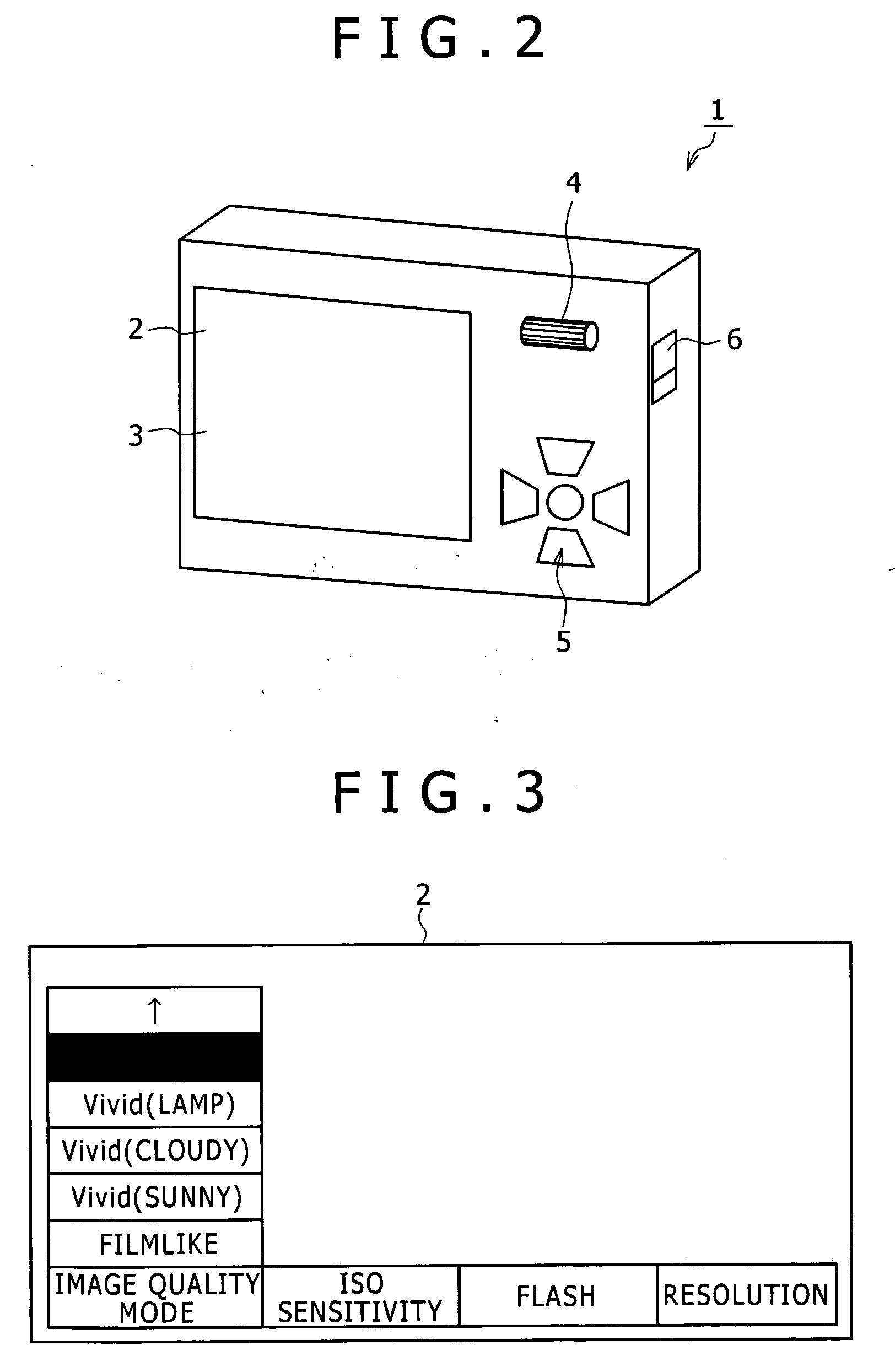Imaging device and method of processing imaging result in imaging device
a technology of imaging device and image quality, which is applied in the direction of static indicating device, color signal processing circuit, instruments, etc., can solve the problems of inability to adjust image quality, grayscale correction and chroma correction problematically affecting practical use, and problematically deteriorating image quality, so as to prevent easy and flexible image correction, the effect of preventing the change of lightness
- Summary
- Abstract
- Description
- Claims
- Application Information
AI Technical Summary
Benefits of technology
Problems solved by technology
Method used
Image
Examples
first embodiment
1. Configuration of Embodiment
[0057]FIG. 2 is a perspective view illustrating an electronic still camera according to a first embodiment of the invention. The electronic still camera 1 is formed into a rectangular thin plate shape, and has a lens and so forth on the front face thereof. In addition, the electronic still camera 1 has a liquid crystal display 2 for monitoring an imaging result on its backside illustrated in the drawing. A touch panel 3 is provided on the display screen of the liquid crystal display 2. Thus, an item in a menu displayed on the liquid crystal display 2 can be selected through the operation of the touch panel 3. The electronic still camera 1 also has on its backside a rotary operating element 4 that can be pressed, and an operating element 5 for selecting a direction and making a decision. Furthermore, the electronic still camera 1 has a slide switch 6 on its side face. The operation of these operating elements 4 to 6 also permits the acceptance of operat...
second embodiment
[0107]FIG. 11 is a plan view illustrating a color mode setting screen in an electronic still camera according to a second embodiment of the invention. The electronic still camera according to this embodiment accepts setting of image quality correction through this color mode setting screen, and sets correction data in a 3D-LUT. The second embodiment has the same configuration as that of the electronic still camera 1 of the first embodiment, except that a series of processing relating to the color mode setting is different. Therefore, the following description also employs the above-described configurations of FIGS. 1 and 4.
[0108] Displayed on this setting screen in the initial state is a menu including items such as image quality correction mode (color mode), ISO sensitivity, flash, and resolution similarly to the above description for the first embodiment (FIG. 3). Selecting from the menu leads to the indication of the corresponding sub menu. Specifically, when the item of image q...
third embodiment
[0117]FIG. 13 is a block diagram illustrating an electronic still camera 41 according to a third embodiment of the invention. In the electronic still camera 41, the same components as those in the electronic still camera of the first and second embodiments are given the same numerals, and overlapping description thereof will be omitted. The electronic still camera 41 automatically selects an image quality correction mode according to imaging conditions that can be detected at the time of imaging.
[0118] In the electronic still camera 41, the driving of a motor 43 moves a focus lens 42 in the optical axis direction, and thus the focus is adjusted so that an optical image is formed on the imaging plane of an imaging element 12.
[0119] A signal processor 44 serves as a configuration including the above-described components from the demosaic processor 13 to the gamma corrector 16 in the first embodiment. The signal processor 44 converts an imaging result obtained from the imaging elemen...
PUM
 Login to View More
Login to View More Abstract
Description
Claims
Application Information
 Login to View More
Login to View More - R&D
- Intellectual Property
- Life Sciences
- Materials
- Tech Scout
- Unparalleled Data Quality
- Higher Quality Content
- 60% Fewer Hallucinations
Browse by: Latest US Patents, China's latest patents, Technical Efficacy Thesaurus, Application Domain, Technology Topic, Popular Technical Reports.
© 2025 PatSnap. All rights reserved.Legal|Privacy policy|Modern Slavery Act Transparency Statement|Sitemap|About US| Contact US: help@patsnap.com



